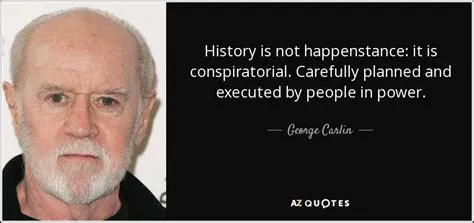In my mind history is comprised of three main threads which weave together to form a complex pattern. I'd like to illustrate this by using an historical example. I'm sure many of us are familiar with Julius Caesar.
First historical thread is the role of the individual
We can all impact history by our actions, or the actions we don't take. Naturally though, some individuals have more historical weight than others. I would suggest that Julius Caesar was one such individual.
He was a magnificent and highly effective general. It was also his decision, and his decision alone, to cross the Rubicon. The factors at the time convinced him he had no other choice. So, that is the role of the individual.
However, Caesar didn't exist in a vacuum
He lived in a specific time and a specific place. Rome. How it was founded, when it existed, it's character and the nature of it's relationship with it's neighbours.
Rome was founded by Romulus and Remus who mythology tells us were suckled by wolves. Rome grew up in a competitive environment which encouraged the development of their military. This was firmly implanted by their victory, finally, over their rivals Carthage.
Julius Caesaar's life was shaped by the concept of Rome, it's political structure and ideology. The conflict between Republic and Empire was a strong driver of his actions. This is what Marxist's refer to when they talk about Historical Materialism. In other words the material conditions that exist at any one time. I'd recommend the film Half Nelson for further discussion/consideration about a Marxist take on history.
However, those are just two threads. Important though both of them are. There is a further thread which is often hidden.
That is the role of conspiracy.
The definition of conspiracy is a secret plan made by two or more people to do something bad, illegal, or against someone's wishes. In essence the conspiracy is covert.
As I'm sure most of you know Julius Caesar was killed by a group of Roman Senators, who conspired to murder him. They cornered him in a corridor at the Theatre of Pompey. He was stabbed 23 times by a group of conspirators. It's now a saying Beware the Ides of March to mark the date.

Quote from American comedian George Carlin
In England we have Bonfire night on the 5th November to commemorate the government quelling a conspiracy to blow up the Houses of Parliament. I learnt a rhyme at school;
Remember, remember
The fifth of November
Gunpowder, Treason and Plot
I see no reason why gunpowder treason
Should ever be forgot
Yet it seems most people still seem unable to grasp the concept that conspiracies are central to our lives. It's just that the hidden nature of them makes it impossible for us to know every dot and comma. Which is what some people demand to know before accepting that we are dealing with a conspiracy.
Take 9/11. Did 19 individual people all wake up that day and independently decide to highjack four airplanes flying to the US. No. It's obvious they conspired. The only question is how high did the conspiracy go.
Now, it's also true that once people grasp the hidden, conspiratorial nature of history it can be tempting to see conspiracies everywhere. And I haven't even mentioned false flags!
For me, this journey of understanding history (and therefore the nature of the world we inhabit) started with looking into 9/11 for myself. This left me better prepared to grasp the concept that Covid-19 has also been a conspiracy and I'd fully recommend anyone to look into that for themselves.

For further reading about history I can recommend EH Carr, What is History - which is a series of essays that discusses bias and morality in individuals and society and how that affects history.
